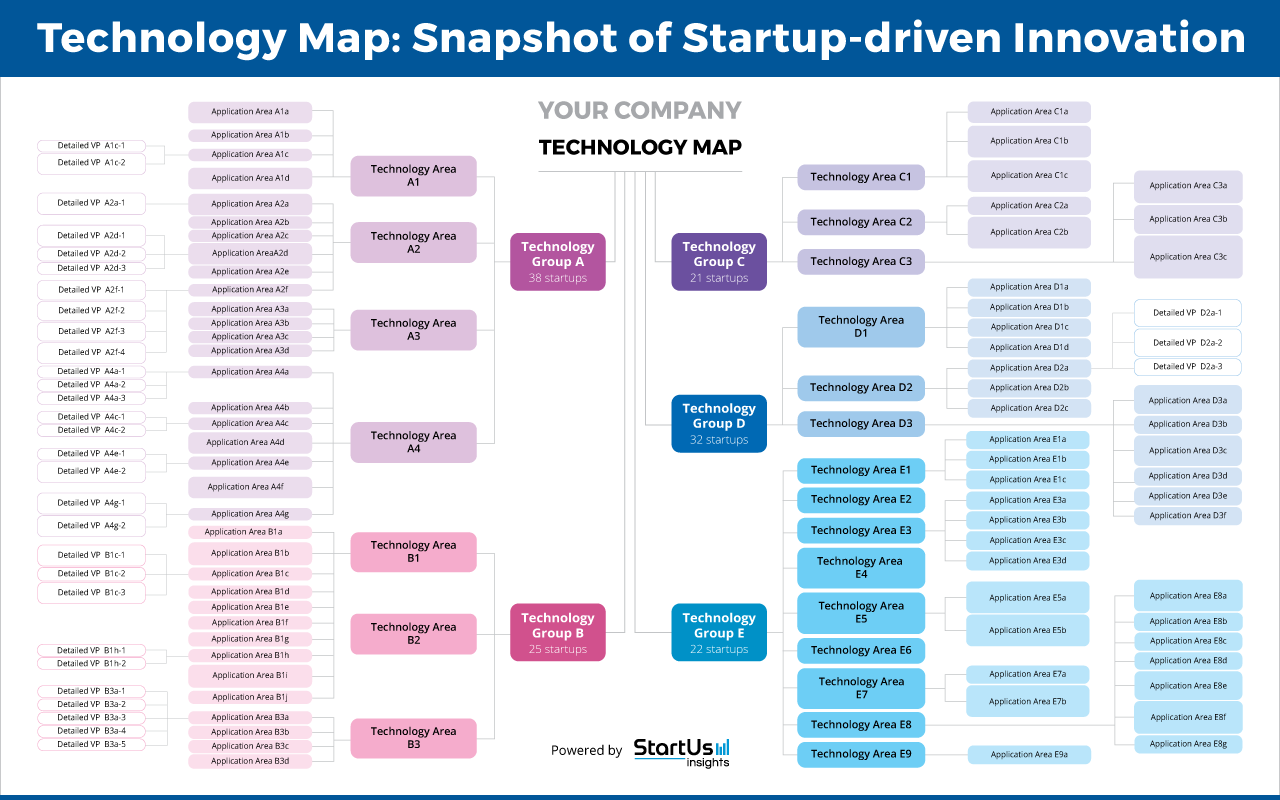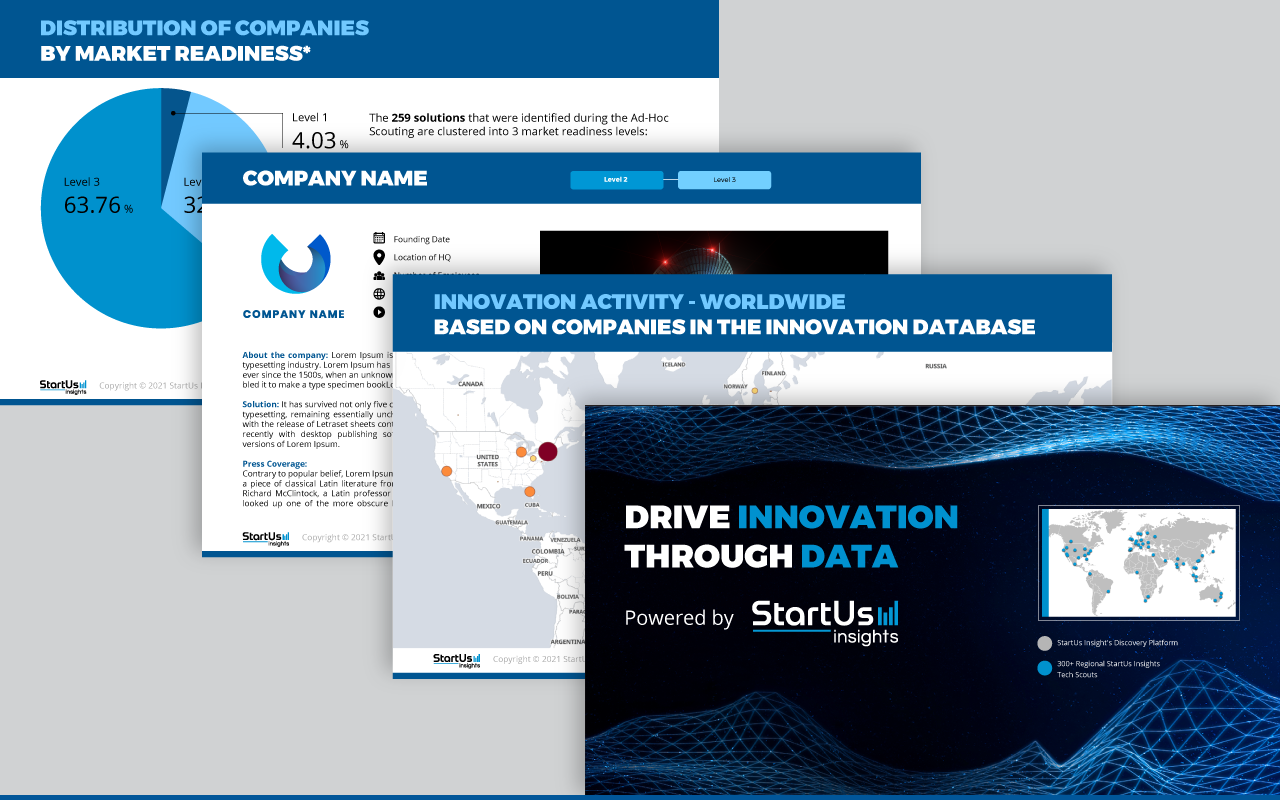Accelerate Productivity in 2025
Reignite Growth Despite the Global Slowdown
Most innovations coming from startups & scaleups are incremental in nature. Bringing an existing solution from the physical to the digital scale does not require a technological marvel. It’s more about the business model, particularly how to scale it. Almost all internet startups fit in this category of “shallow tech” startups. Deep tech startups, on the contrary, tackle more fundamental challenges. However, because the pull of deep tech is not as strong for venture capitalists or other investors with short horizons, they rely more heavily on corporate-startup collaborations.
The combination of lack of resources for deep tech sources and the increasing competition among large corporations presents opportunities for both parties. Corporate venturing allows established firms to efficiently incorporate new knowledge in their innovation processes. But betting on the right scientific or technological advancements requires continuous monitoring to identify disruptive technologies early on. That is where deep tech scouting comes in.
What Makes Deep Tech Scouting Different?
Deep tech startups represent a niche set of tech startups. Owing to their complexity, scouting for deep tech startups comes with a few additional considerations as compared to startup scouting in general. Some of these include:
Longer Investment Periods
Because of the significant technology advancements required, deep tech startups take far longer to mature. Developing a product and commercializing it generally takes years of sustained investment. According to data gathered from the StartUs Insights Discovery Platform (more on it later), the median funding raised by a deep tech startup is $ 1,5 M as compared to $350 000 for all startups.
Innovating with deep tech startups can be a great catalyst for an organization’s long-term innovation goals. However, for companies that need to react quickly, matching the time horizons can be tricky, and investing in other tech startups could be a safer bet.
Technical Risk is Greater than Market Risk
The market risk is often minimal to none as there isn’t usually a market yet for competitors to be in. However, deep tech startups carry a great technical risk. If the novel technology fails to deliver on its promise, investments can turn to dust. For a corporate looking to collaborate with a deep tech startup, an unbiased tech evaluation is a must. Not investing in an independent audit of the technology can leave you vulnerable to risks ranging from overinflated valuations to outright fraud, as in the case of Theranos.
For deep tech startups, patents are critical to protecting their innovations. Before collaborating, a company needs to assess the potential of a startup’s intellectual property and the best way to fit it within or along with its internal projects.
Different Founder Demographic
A prominent feature of “shallow tech” startups is how easy they are to build, especially now with no-code tools. Two friends working out of a garage may build the next 10-minute grocery delivery app, but are far less likely to develop cultured meat that costs the same as animal meat. On the contrary, founders of deep tech startups are often PhDs or have significant academic experience.
In BioTech and pharma, two industries where innovations are mostly deep tech, there are more founders with PhDs than without. Many such startups are spun out from academic or research institutions. Often, the lack of industry expertise among founders of these startups can compound the risks of deep tech.

A technology map of deep tech trends clusters innovations based on the underlying scientific and technological advances with a focus on what you’re looking for.
Why Collaborate with Deep Tech Startups?
Most businesses seek a quick return on their investments. When investing in deep tech startups, that’s highly unlikely to happen. Why should you, then, invest in deep tech when your competition could be making a quick buck? Here are three reasons:
1. Create Markets that Don’t Exist
Imagine a biopharma company researching a novel drug or a MedTech company building a surgical device that treats an as of yet incurable disease. Needless to say, should either of these startups succeed, they will likely be the first, and for a long time the only, startups to serve this niche. By creating a market where none existed, deep tech scouting provides opportunities that are unchallenged for the duration of the protection afforded by IP rights.
2. Leverage the Technology-First Approach
While developing new technologies, companies either take the marketing-first or technology-first route. In the first approach, companies survey the markets to understand customer needs before developing products that meet those needs. That works for most companies most of the time, but the greatest innovations require a technology-first approach. In an apocryphal anecdote, Henry Ford once said that “if I had asked people what they wanted, they would have said faster horses.”
A technology-first approach carries greater risks as well as greater rewards. Working with deep tech startups allows companies to reduce the risk for this approach. Even then, most companies will do well to have a healthy balance of market-first and technology-first innovation projects.
3. Identify Novel Business Opportunities
Deep tech startups are working on disruptive technologies that are unmatched by the status quo. Moreover, most deep tech startups work at the intersection of multiple such technologies. When working with such startups or scaleups, open innovation allows companies to identify new use cases and opportunities for these technologies. The level of cross-fertilization of ideas in the deep tech ecosystem is higher than any other domain of startup activity. Tapping into these ideas allows companies to gain or maintain a competitive advantage.
Elevate Your Deep Technology Scouting Process
A data-driven approach takes the hassle out of identifying technology trends that best align with your innovation ambitions. It gives you actionable insights from billions of data points from disparate sources. Using Big Data & AI, the StartUs Insights Discovery Platform analyzes data on startups and scaleups developing emerging technologies.
Depending on your innovation goals and requirements, we offer a range of deliverables for your deep technology scouting process. Some of these include:
- Technology Map: Visualizes emerging technologies and their applications in your industry of interest.
- Technology Report: Provides firmographic data and insights on highly relevant startups, scaleups, and the technologies they develop.
- Startup Database: Covers hundreds of relevant startups that match your innovation goals.

Based on your open innovation strategy, StartUs Insights provides you data-driven insights on the deep tech ecosystem.
To discover how we at StartUs Insights identify emerging technologies that match your innovation agenda, we offer a free consultation. If you want to quickly find deep technology trends that will shape your industry, get in touch today to identify what’s next!

![Business Resilience Planning: 10 Strategies & Technologies to Tackle the Current Market [2025-2026]](https://www.startus-insights.com/wp-content/uploads/2025/06/Business-Resilience-Planning-SharedImg-StartUs-Insights-noresize-420x236.webp)
![10 Biggest Business Trends: What to Invest in, Build, and Watch Closely [2025-2030]](https://www.startus-insights.com/wp-content/uploads/2025/06/Business-Trends-SharedImg-StartUs-Insights-noresize-420x236.webp)




